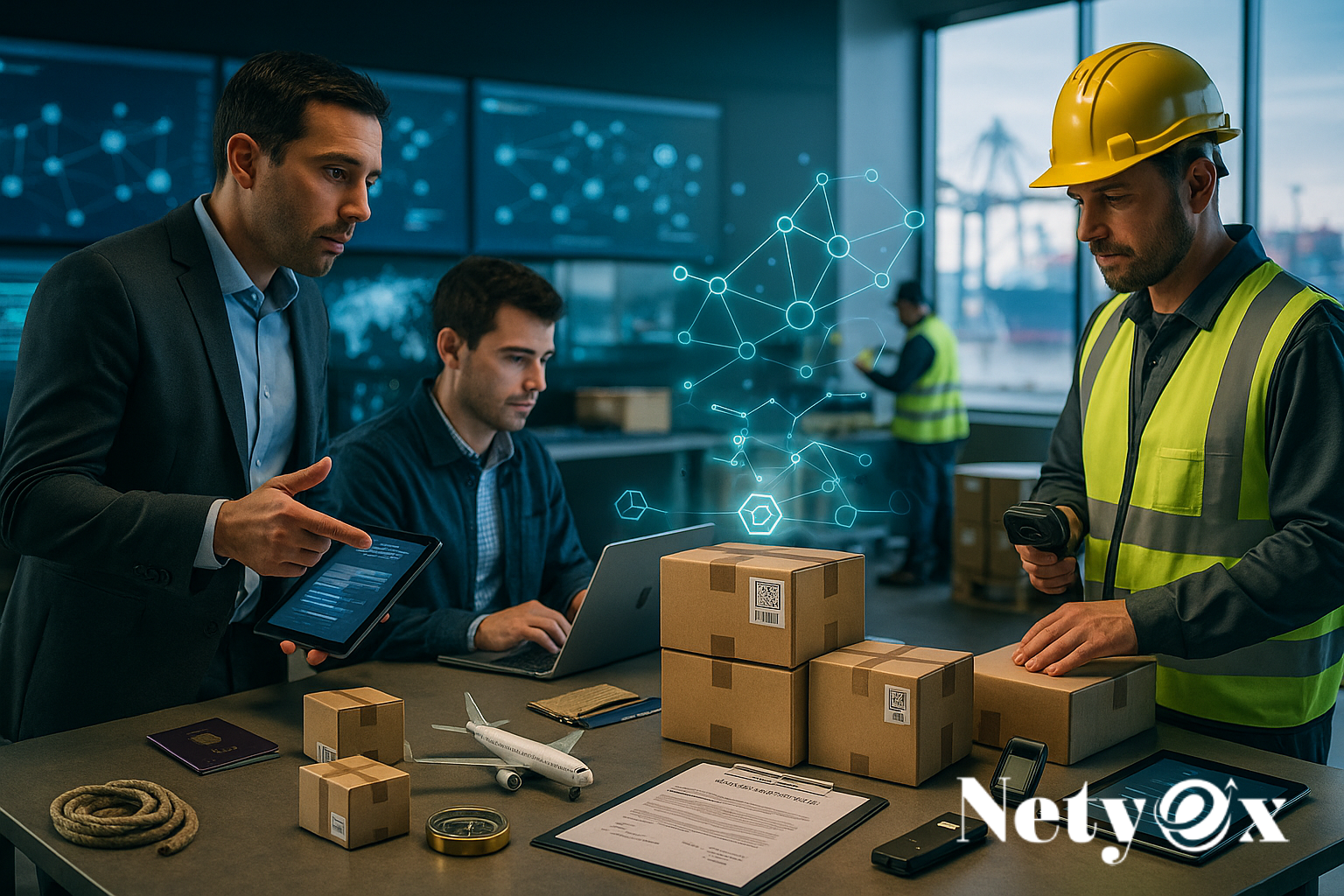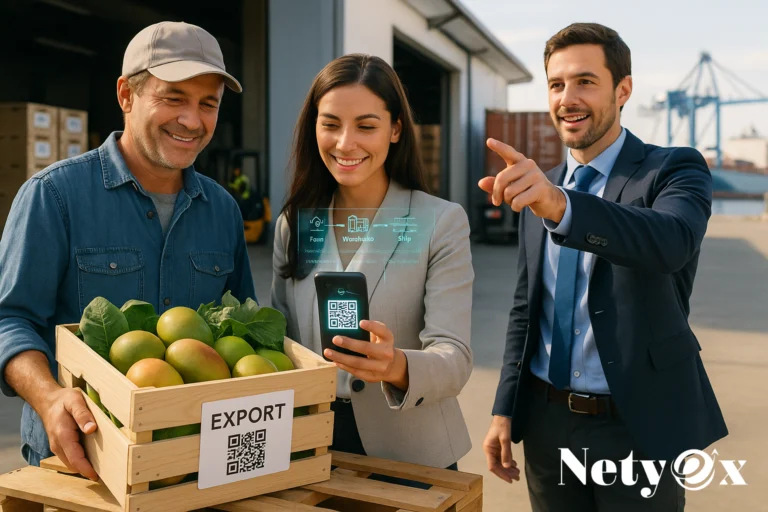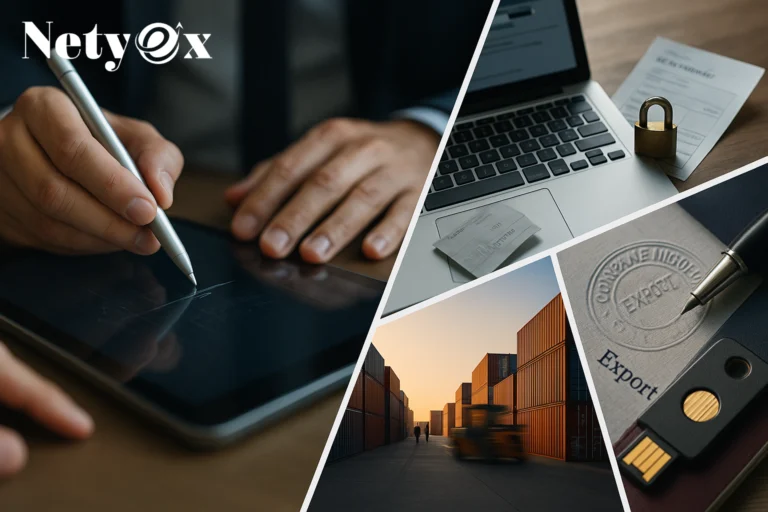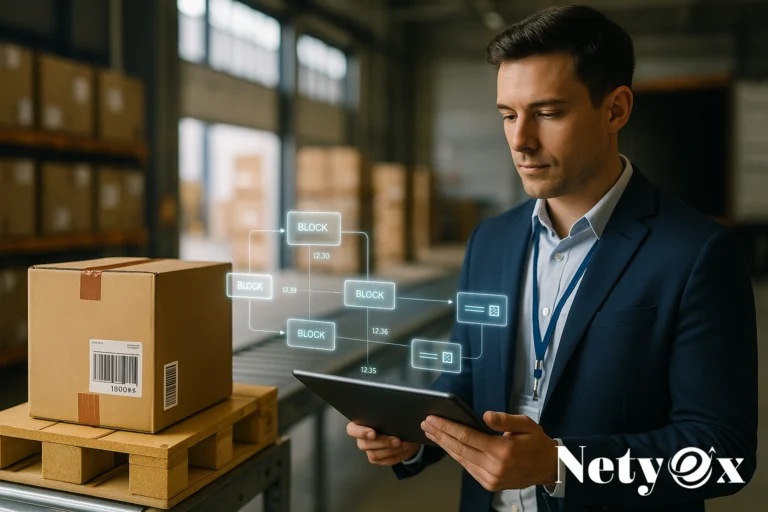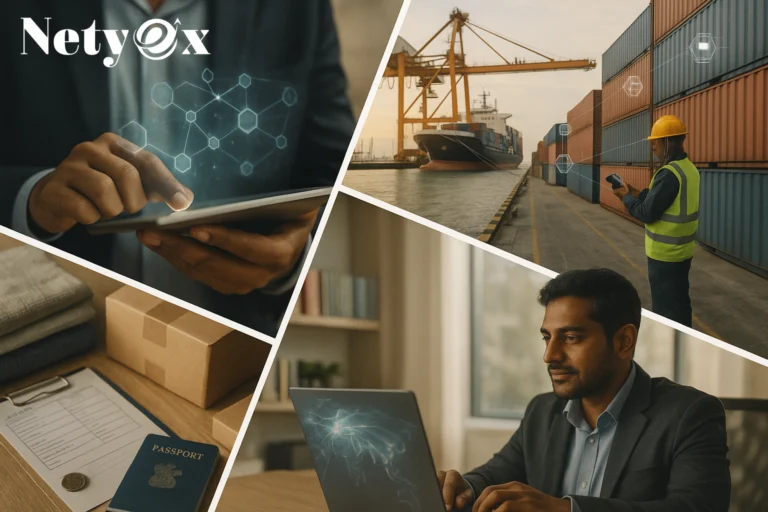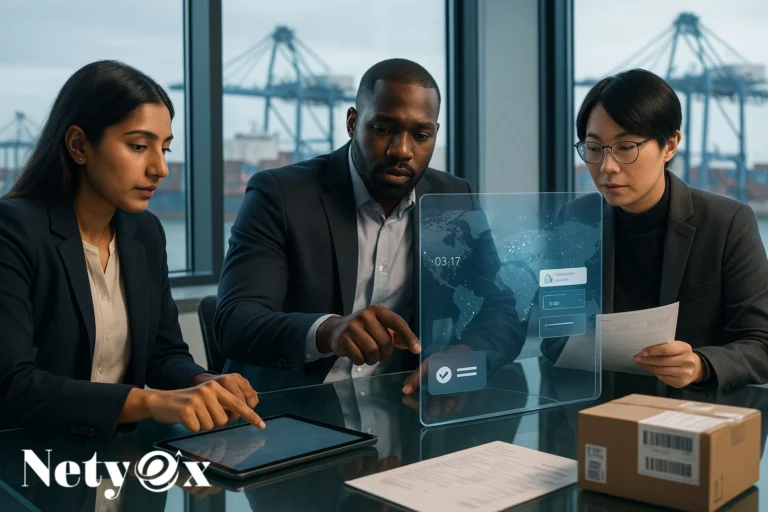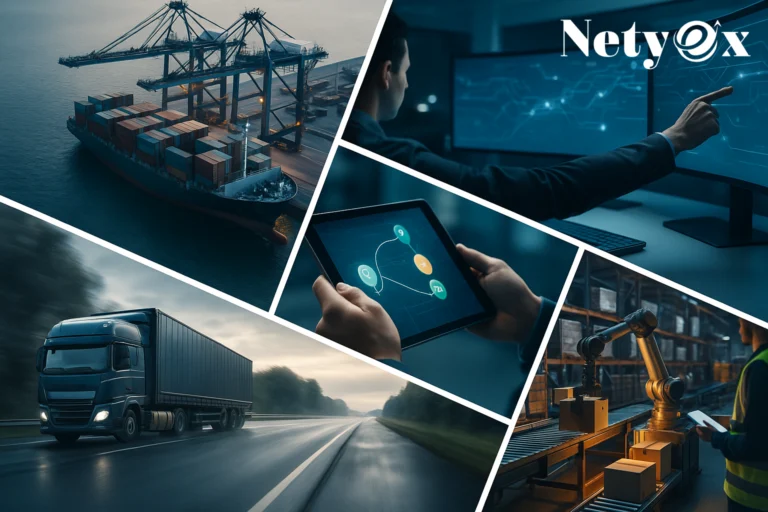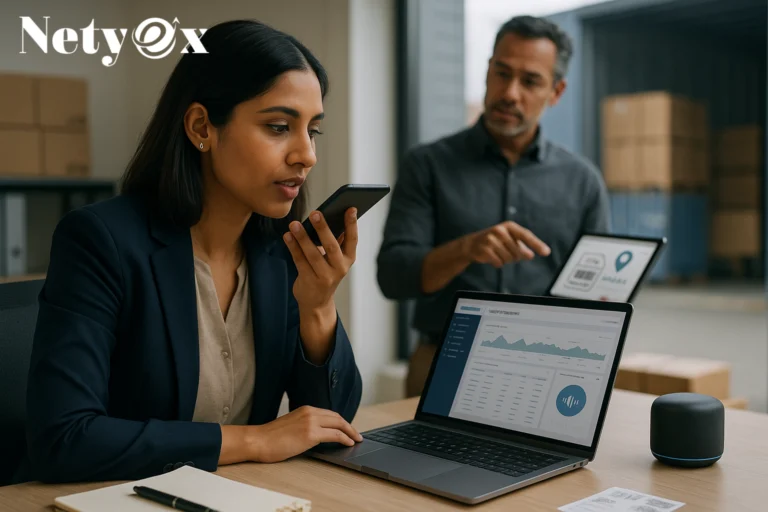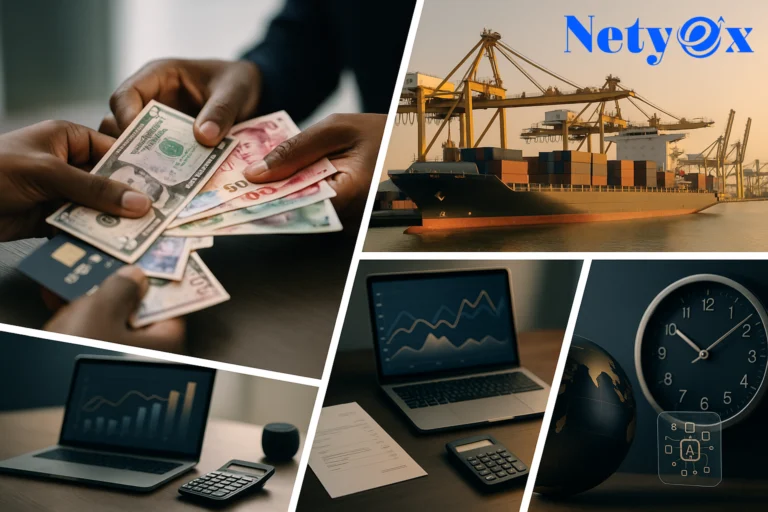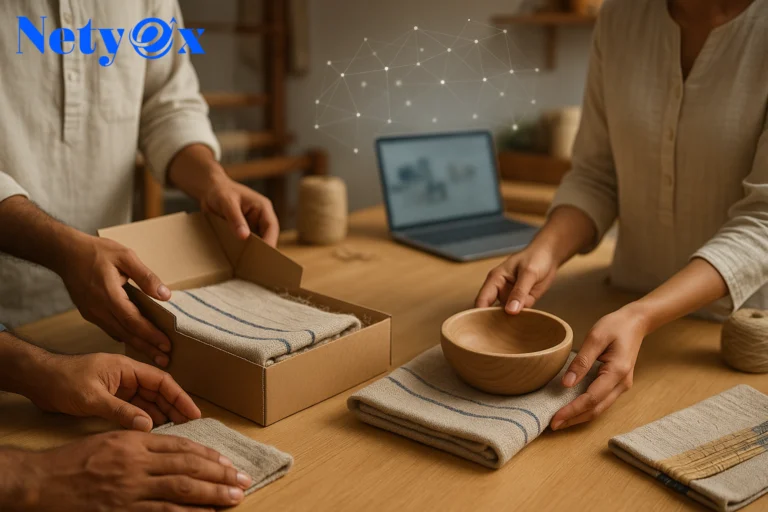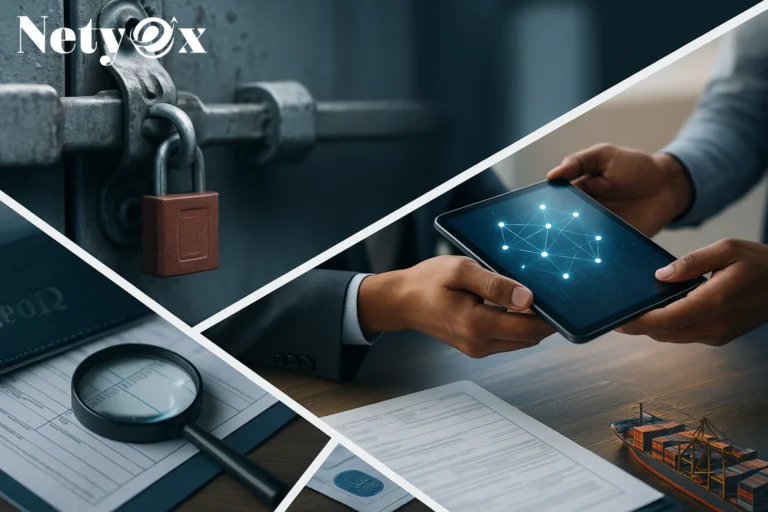Introduction: The Evolution of Blockchain in Global Supply Chains
Blockchain technology, once synonymous with cryptocurrencies, has now found its most powerful use case in global logistics. As the world becomes more interconnected, supply chains have grown increasingly complex — involving multiple stakeholders, border regulations, and data silos. This is where blockchain technology is stepping in as a game-changer.
In 2025, logistics companies across continents are adopting blockchain to streamline operations, enhance transparency, and eliminate inefficiencies. From cargo tracking to customs clearance, blockchain is rewriting how goods move across the globe.
What Is Blockchain Technology and How It Works in Logistics
At its core, blockchain is a decentralized digital ledger that records transactions in a secure, tamper-proof way. Each transaction, or “block,” is linked to the previous one — creating a chain of trust that’s visible to all participants in the network.
Key Components of Blockchain Relevant to Logistics
- Distributed Ledger: Every participant has a synchronized copy of the transaction data.
- Consensus Mechanisms: Validations occur only when all parties agree on the accuracy of data.
- Smart Contracts: These are self-executing programs that trigger actions automatically based on predefined conditions.
Blockchain vs Traditional Data Management Systems
Unlike centralized databases that are prone to hacking or manipulation, blockchain ensures data integrity, transparency, and accountability at every step of the logistics process.
The Current Challenges in Global Logistics
The logistics sector is the backbone of international trade — yet it’s burdened by outdated systems and paper-heavy processes.
Lack of Transparency and Traceability
Most logistics operations still rely on manual entries and isolated systems, making it difficult to trace products or verify data authenticity.
Counterfeit Goods and Fraudulent Activities
According to the OECD, counterfeit goods account for over 3% of global trade, costing billions annually. Blockchain provides immutable proof of product origin.
Inefficiencies in Cross-Border Transactions
Customs delays and document errors are common in international logistics. Blockchain’s shared ledger can automate verifications and reduce paperwork.
How Blockchain Solves Key Logistics Problems
Real-Time Tracking and Visibility
Blockchain enables end-to-end visibility across the supply chain. Each participant, from manufacturer to retailer, can monitor goods in real-time.
Smart Contracts for Automated Operations
Smart contracts replace manual approvals with automated, condition-based execution, reducing delays and human error.
Immutable Data for Enhanced Security
Once recorded, blockchain data cannot be altered. This ensures data authenticity — essential for compliance, audits, and risk management.
Real-World Applications of Blockchain in Global Logistics
Blockchain-Powered Shipping and Freight Tracking
Shipping giants use blockchain to create shared visibility across shipping lines, freight forwarders, and customs authorities.
Customs Clearance and Cross-Border Compliance
By digitizing documents on blockchain, international trade processes are streamlined, reducing clearance time from days to hours.
Cold Chain Monitoring in Food and Pharma Industries
Blockchain integrated with IoT sensors helps maintain temperature integrity, ensuring that perishable goods remain within safe limits.
Major Companies Using Blockchain in Logistics
IBM and Maersk: TradeLens Initiative
TradeLens, a blockchain platform by IBM and Maersk, connects over 100 global ports and logistics operators, increasing efficiency and reducing fraud.
FedEx’s Blockchain-Based Tracking System
FedEx leverages blockchain to provide end-to-end shipment visibility, resolving disputes and improving customer trust.
Walmart’s Supply Chain Transparency Model
Walmart uses blockchain to track food products from farm to store, reducing contamination risks and ensuring freshness.
Benefits of Blockchain for Global Logistics
Improved Transparency and Trust
All stakeholders share the same verified data, eliminating discrepancies and mistrust.
Reduced Costs and Errors
Automation through smart contracts cuts down on administrative costs, while immutable records minimize errors.
Enhanced Collaboration and Accountability
Blockchain fosters a collaborative ecosystem, where every participant is accountable for their data input and actions.
Integration Challenges and Limitations
Technical and Regulatory Barriers
Different countries have varied regulations on data sharing and privacy, complicating cross-border blockchain adoption.
Scalability and Interoperability Concerns
Integrating blockchain with legacy systems remains a challenge due to infrastructure limitations.
Adoption Costs and Workforce Readiness
Initial setup and training costs can be high, especially for small logistics providers.
The Future of Blockchain in Global Logistics
Emerging Trends and Innovations
The next decade will see blockchain combined with AI, IoT, and 5G, enhancing predictive analytics and supply chain automation.
AI and IoT Integration with Blockchain
Smart sensors feeding data directly into blockchain will enable real-time verification and autonomous logistics management.
Predictions for 2030 and Beyond
By 2030, blockchain could become a standard infrastructure for global trade, reducing fraud and saving billions annually.
FAQs About Blockchain in Logistics
1. How does blockchain improve supply chain transparency?
It creates a shared digital record accessible by all stakeholders, ensuring real-time visibility of product movement.
2. Can blockchain reduce logistics costs?
Yes, through automation, reduced paperwork, and faster dispute resolution, blockchain can cut administrative costs significantly.
3. Is blockchain secure for sensitive trade data?
Absolutely. Blockchain’s encryption and distributed structure make it nearly impossible to tamper with data.
4. What industries benefit most from blockchain logistics?
Retail, pharmaceuticals, agriculture, and manufacturing are among the top beneficiaries.
5. Are there any government regulations on blockchain logistics?
Many countries are still developing frameworks, though organizations like the World Economic Forum are promoting global standards.
6. How can small businesses adopt blockchain?
They can partner with blockchain-as-a-service (BaaS) providers to integrate scalable solutions without heavy infrastructure costs.
Conclusion: The Road Ahead for Blockchain-Driven Logistics Transformation
Blockchain is not just a technological upgrade — it’s a revolutionary shift for the global logistics industry. By ensuring transparency, reducing fraud, and improving efficiency, it’s redefining how goods move across the world. As integration deepens with AI and IoT, blockchain will soon become the digital backbone of international trade — connecting economies, building trust, and driving global growth.



